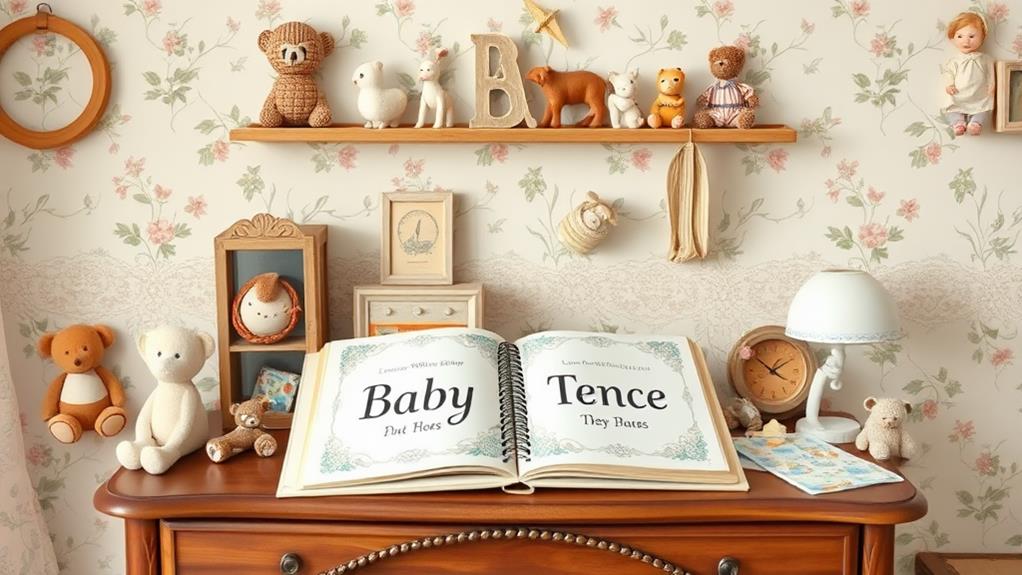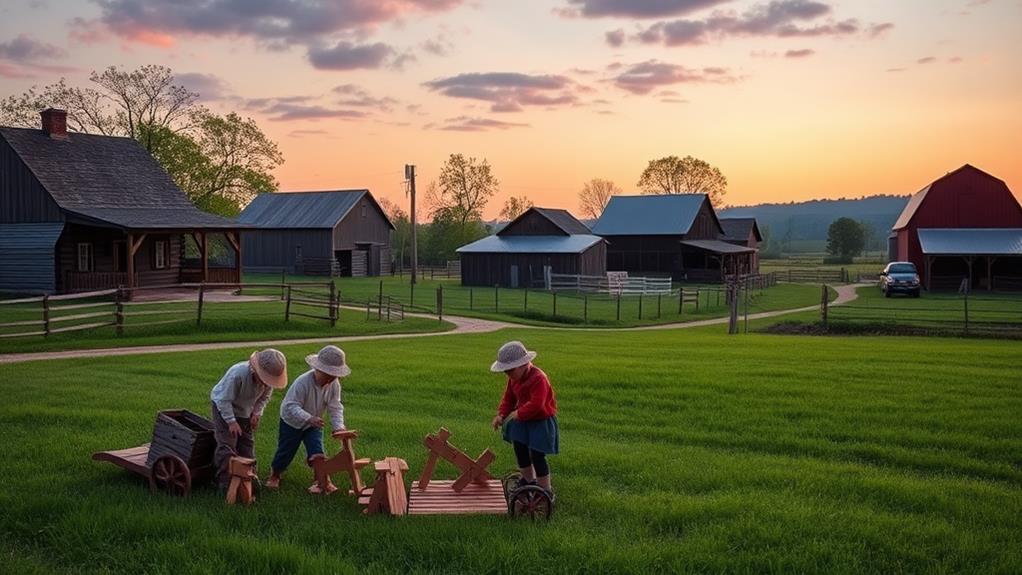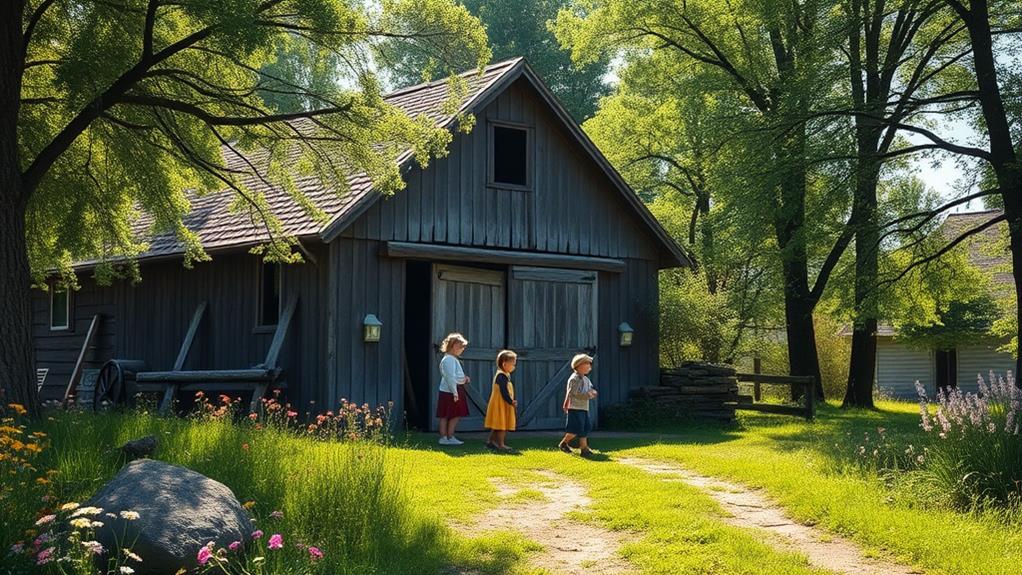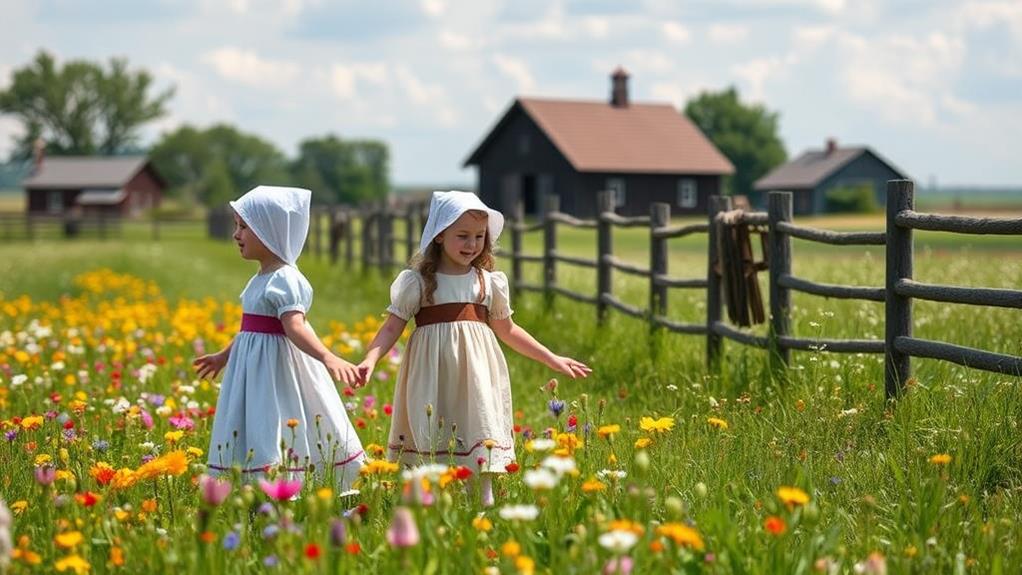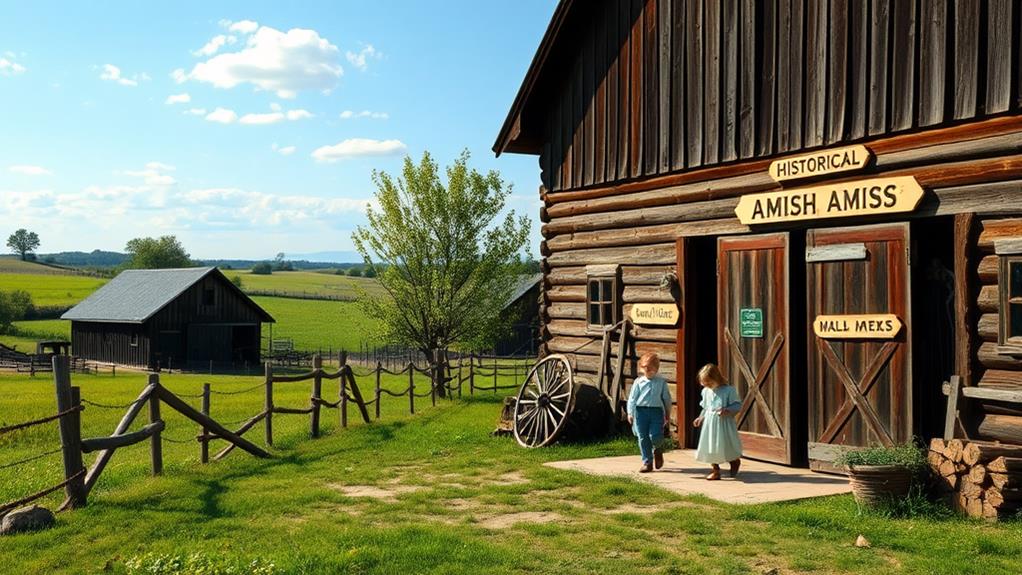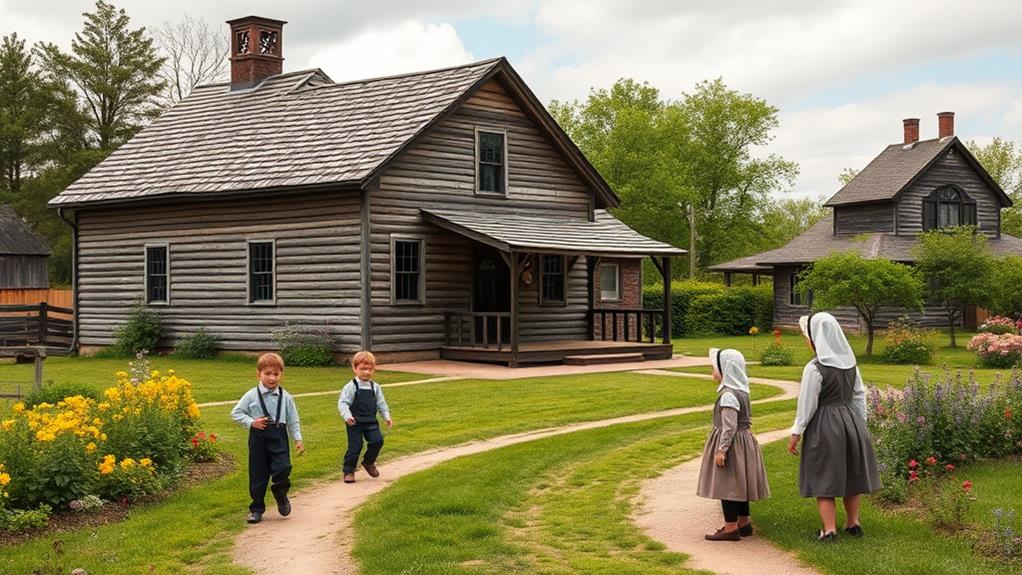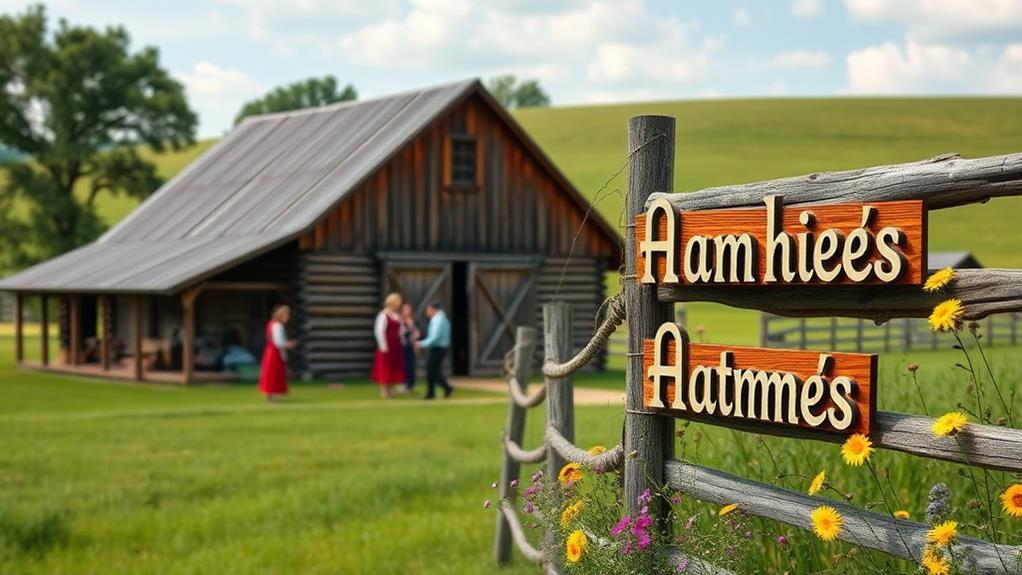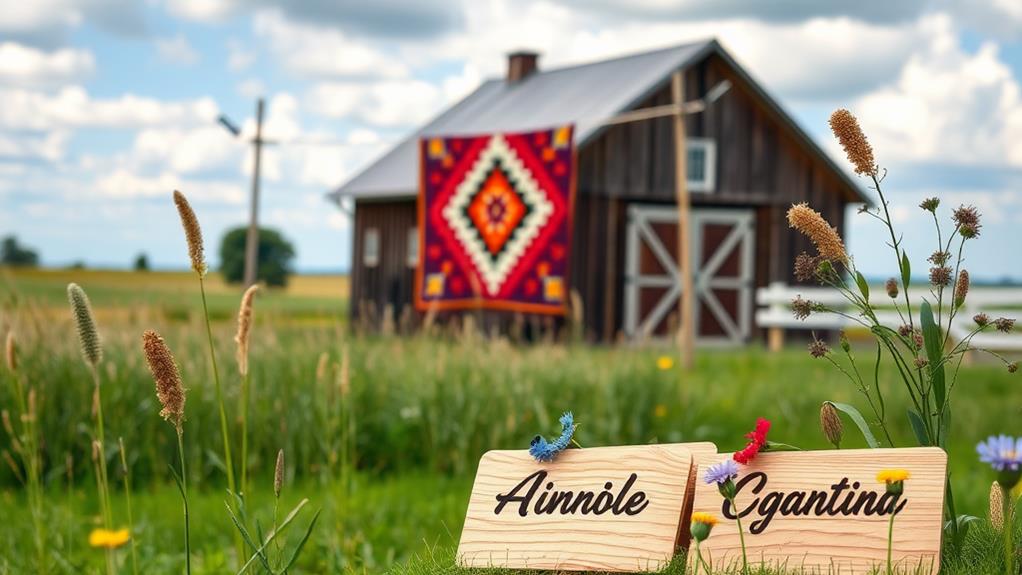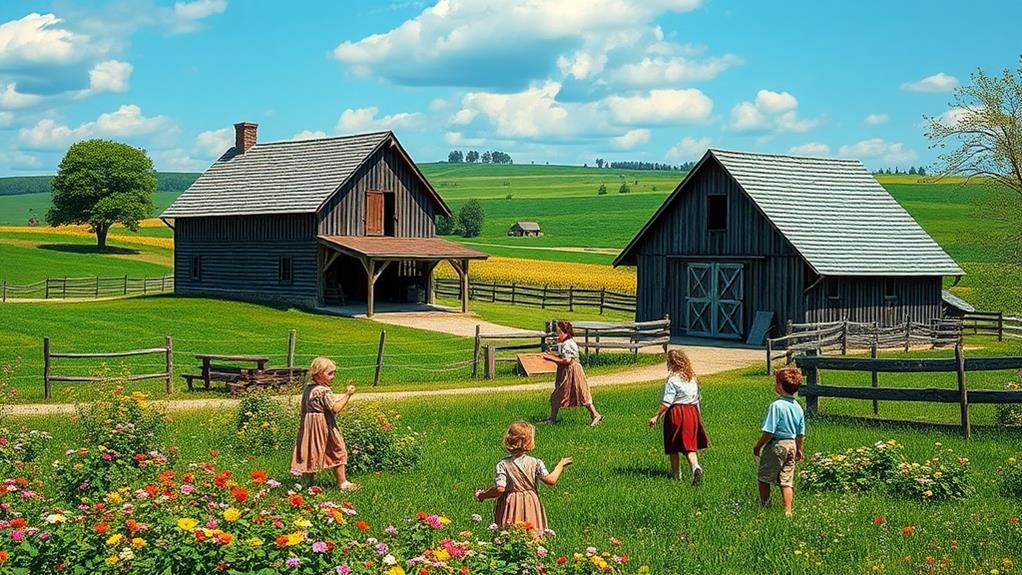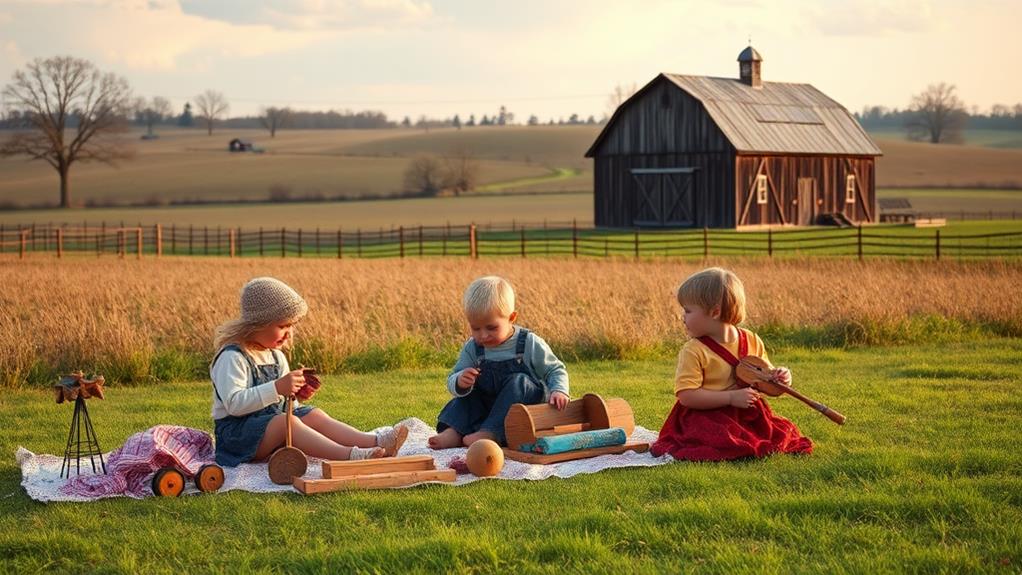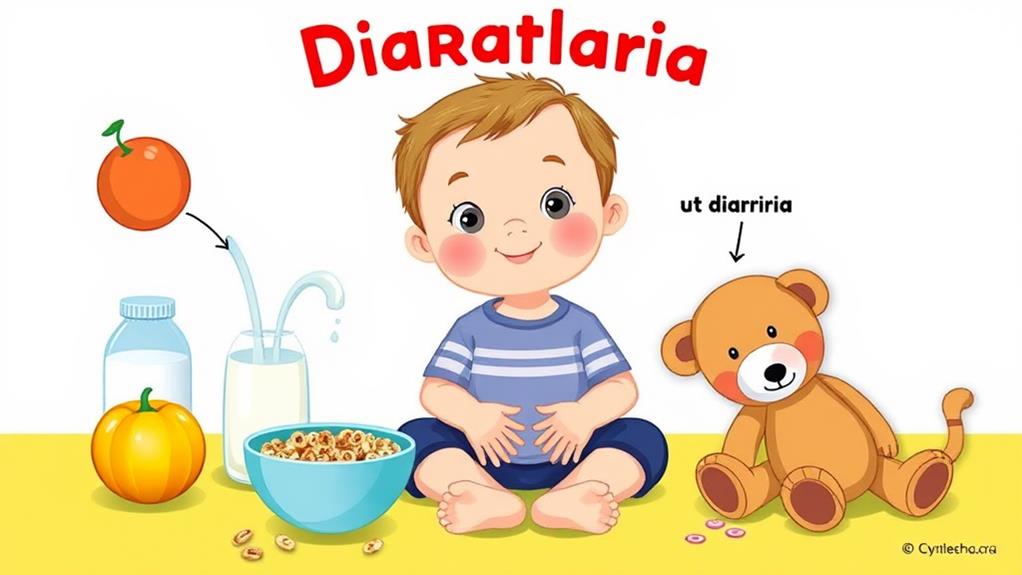When you're planning activities for children, you might want to consider how versatile and engaging balloon games can be. They not only get kids moving but also foster creativity and teamwork. Whether it's a balloon toss or a competitive round of balloon volleyball, these games can adapt to various settings, from birthday parties to casual playdates. You'll find that some games encourage skill development while others focus on pure fun. Curious about how these simple inflatables can transform playtime into memorable experiences? Let's explore what makes these balloon games so appealing.
Balloon Pop Relay

Have you ever tried a Balloon Pop Relay? This exciting game combines speed, teamwork, and plenty of laughs, making it a perfect addition to any party or gathering.
To set it up, you'll need a bunch of balloons and a clear space for the teams to run. Divide everyone into two or more teams, and give each team a balloon to start with.
The goal is simple: team members race to pop their balloon by sitting on it, using only their bodies to create the pressure needed. Once one teammate pops their balloon, they'll dash back to tag the next player, who then repeats the process.
You can add variations, like requiring players to hop or skip while trying to pop their balloon, to make it even more challenging!
This game not only encourages physical activity but also fosters camaraderie and friendly competition. Watching teammates cheer each other on as they race can create lasting memories.
Plus, the sound of popping balloons is sure to elicit giggles from everyone around. So, gather your friends, grab those balloons, and get ready for a fun-filled day of laughter and excitement with a Balloon Pop Relay!
Balloon Volleyball
Balloon Volleyball is a fantastic way to bring energy and excitement to any gathering, and it's easy to set up! All you need is a balloon, a makeshift net, and some eager players. You can create a net using a simple piece of string or even a table. Just make sure there's enough space for everyone to move around.
To play, divide the participants into two teams. Each team stands on opposite sides of the net, ready to serve and spike the balloon back and forth. The goal is to keep the balloon from touching the ground on your side while trying to score points by landing it on the other side.
Don't worry about strict rules; the objective is to have fun! You can introduce variations like using only one hand or adding additional balloons for a bigger challenge.
As the game progresses, you'll notice everyone getting more competitive and engaged. Balloon Volleyball not only promotes teamwork but also helps improve coordination.
Balloon Toss

After enjoying the excitement of Balloon Volleyball, you can switch gears to Balloon Toss, a game that's just as fun but focuses more on coordination and teamwork. This game is simple to set up and can be played indoors or outdoors, making it perfect for any occasion.
To start, gather a group of friends and grab a few balloons. You'll want to ensure they're inflated but not too full, as this makes them easier to catch. Divide everyone into pairs, facing each other about five feet apart. The objective is to toss the balloon back and forth without letting it touch the ground. As you get better, you can increase the distance between you and your partner.
To make it even more challenging, try adding some twists. You could use only one hand or even toss the balloon behind your back. These variations keep the game exciting and encourage players to work together.
Balloon Animal Contest
Get ready to unleash your creativity in the Balloon Animal Contest! This exciting game challenges you to twist and shape balloons into your favorite animals. Gather a few friends and set up a space where everyone can showcase their balloon-making skills. You'll need a variety of balloons, some easy-to-follow instructions, and your imagination.
Start by picking an animal you want to create. Whether it's a dog, cat, or even a giraffe, there are plenty of tutorials available online to guide you. As you twist the balloons, remember to inflate them properly—too much air can pop them, and too little can make them floppy.
Once you've mastered a few animals, it's time to show off your creations! Set a timer and see who can make the most unique balloon animal in a limited time. You can even add a twist by judging each other's animals based on creativity, size, or even speed.
This contest not only encourages teamwork but also sparks friendly competition. So, roll up your sleeves, grab those balloons, and let the fun begin! You never know; you might just discover a hidden talent for balloon artistry.
Balloon Painting

One of the most fun and creative activities you can try is balloon painting, where you'll transform ordinary balloons into colorful masterpieces. To get started, gather some balloons, non-toxic paint, and large sheets of paper or canvas. Inflate the balloons to your desired size and secure them with string or tape to keep them steady while you work.
Next, pour different paint colors onto paper plates or shallow containers. Dip the balloons into the paint or gently roll them over the paint, then press them onto the paper. You'll create lovely patterns and designs as you mix and match colors. Don't be afraid to experiment! Try using different balloon sizes or shapes for varied effects.
Once you've finished painting, let your artwork dry completely before displaying it. You can even add finishing touches with brushes or markers if you want.
Balloon painting isn't just a creative outlet; it's also a great way to bond with friends or family. So, gather everyone around, unleash your artistic side, and enjoy the splashes of color that fill the air. Happy painting!
Balloon Balloon Race
If you're looking for an exciting way to engage kids and spark their competitive spirit, a balloon balloon race is a fantastic choice. This game is simple to set up and loads of fun! To get started, you'll need a few balloons and some space to run.
Divide the kids into teams and give each team a balloon. The goal is to race to a designated finish line while keeping the balloon in the air—no touching it with hands allowed!
You can make the race even more interesting by adding challenges. For example, have them race while hopping on one foot or spinning in circles before taking off. These twists will keep everyone on their toes and guarantee laughter along the way.
To ensure a fair competition, set a time limit or determine a specific distance. As the kids race, encourage cheering and support from the sidelines, which adds to the excitement.
Once the race is over, celebrate everyone's effort with small prizes or certificates to make them feel special. Balloon balloon races not only promote physical activity but also foster teamwork and sportsmanship, making them an excellent choice for any gathering!
Balloon Keep-Up

After the excitement of a balloon balloon race, Balloon Keep-Up offers another fun way to keep the energy high. In this engaging game, each player tries to keep a balloon in the air without letting it touch the ground. You can play this game indoors or outdoors, making it versatile for any setting.
To start, gather your friends and give each of you a balloon. Set a timer for a fun twist—whoever manages to keep their balloon up the longest wins! You'll find yourself bouncing and swatting at the balloon, using your hands, feet, or even your head. The more players you have, the more chaotic and entertaining it becomes.
To add an extra challenge, try incorporating some rules. For instance, you could limit how many times you can touch the balloon or designate a specific body part to use. This way, you'll not only have a blast but also improve your coordination and reflexes.
Plus, Balloon Keep-Up encourages teamwork as you cheer each other on. So grab some balloons, gather your friends, and let the fun begin! You're sure to have a great time while keeping those balloons in the air.
Balloon Basketball
Balloon Basketball is a fantastic way to combine the thrill of sports with the playful nature of balloons. You can easily set up a game in your backyard or even indoors. All you need are a few balloons, some hoops, and your friends.
Start by creating a hoop using a hula hoop, a laundry basket, or even a cardboard box. Position it at a suitable height for everyone to reach.
To play, split into two teams. Each player tries to toss a balloon through the hoop, earning points for every successful shot. You can add rules like dribbling or passing the balloon to make it more challenging. Make sure to keep the atmosphere light and fun; the goal is to enjoy the game together.
If you want to amp up the excitement, introduce a time limit for each round. This won't only speed up the game but also add some friendly competition.
Balloon Basketball is perfect for building teamwork skills and keeping everyone active. Plus, the laughter and cheers that fill the air will create lasting memories. So grab those balloons, gather your friends, and get ready for some high-flying fun!
Balloon Bowling

Get ready for a fun twist on a classic game with Balloon Bowling! This exciting activity combines the thrill of bowling with the lightheartedness of balloons, making it perfect for children of all ages.
To set up, you'll need a few empty plastic bottles or any lightweight objects to serve as your bowling pins. Arrange them in a triangle shape at the end of a smooth, open space, like a hallway or backyard.
Now, fill a balloon with air and tie it off. You can decorate it for added flair! When you're ready to play, stand back a few feet and roll the balloon toward the pins. Watch as it bounces and sways, creating an unpredictable and hilarious bowling experience.
You can even keep score to add a competitive edge! Feel free to mix things up by adjusting the distance or adding obstacles for extra challenges.
Balloon Bowling isn't only fun, but it also encourages teamwork and coordination. So gather your friends or family, and get rolling! You'll be laughing and having a blast in no time. Enjoy the game and let the good times roll!
Balloon Balancing
Once you've enjoyed the excitement of Balloon Bowling, it's time to test your skills with Balloon Balancing! This fun game challenges you to keep a balloon in the air while balancing it on different parts of your body. You can start by placing the balloon on your head, then try balancing it on your hand or even your knee. The goal is to see how long you can keep it up without letting it touch the ground.
To make it more competitive, you can create teams and see which team can balance the most balloons at once. You might want to set a timer and encourage everyone to switch positions, adding an extra layer of difficulty.
Remember, if the balloon falls, it's not the end! Just pick it up and give it another go.
Balloon Balancing not only improves coordination but also brings a lot of laughter and fun to your gathering. Plus, it's a great way for kids to burn off energy while enhancing their balance skills.
Balloon Dodgeball

Often a favorite among kids, Balloon Dodgeball is a thrilling twist on the classic game that adds a splash of color and fun. In this energetic version, you'll use soft, inflatable balloons instead of hard balls, making it safer and more enjoyable for everyone involved. You can play this game indoors or outdoors, making it versatile for different settings.
To set up, divide players into two teams, and create a designated playing area with clear boundaries. Each team gets a stack of balloons, which they'll throw at the opposing team. The goal is to dodge the balloons while trying to hit members of the other team. If you get hit, you're out for that round, but don't worry—you can join back in once the round concludes!
Encourage teamwork by having players strategize on how to best defend against incoming balloons or coordinate their throws. As the game progresses, you'll notice laughter and excitement filling the air.
Balloon Dodgeball not only promotes physical activity but also fosters social interaction and friendly competition. So gather your friends, inflate those balloons, and get ready for an unforgettable game!
Balloon Hunt
Balloon Hunt is an exciting scavenger-style game that turns the search for colorful balloons into a fun-filled adventure. This game can be played indoors or outdoors, making it perfect for any occasion.
To get started, you'll need a bunch of balloons in various colors and a few hiding spots around your play area.
Begin by blowing up the balloons and hiding them in creative places, like behind furniture, under bushes, or inside bags. Once everything's ready, gather the players and explain the rules. You can set a timer for added excitement!
When the timer starts, everyone races to find as many balloons as they can.
To make it even more engaging, you can assign points based on the color or size of the balloons. For example, a blue balloon might be worth three points, while a red one is worth five.
At the end of the hunt, tally up the points to declare a winner! Balloon Hunt encourages teamwork, enhances problem-solving skills, and keeps everyone active.
Balloon Freeze Dance

Get ready for a lively twist on the classic freeze dance with Balloon Freeze Dance! This fun game combines music, movement, and balloons, making it a hit at any gathering. To play, you'll need some balloons and a speaker for music.
Start by inflating a few balloons and spreading them around the playing area. When the music starts, everyone dances around the balloons. The challenge? You've gotta keep the balloons in the air while grooving to the beat!
When the music stops, everyone must freeze in place. If a balloon touches the ground while you're frozen, you're out of the game! The last dancer standing wins a fun prize, but the real joy comes from the laughter and energy of the game.
You can even add variations to keep it exciting. For instance, you can change the dance style or allow players to switch balloons while the music plays.
Balloon Freeze Dance is perfect for parties, family gatherings, or even classroom activities. It encourages physical activity, coordination, and teamwork, all while providing a great opportunity for kids to express themselves.
Balloon Ring Toss
A classic carnival game comes to life with Balloon Ring Toss! This fun activity is perfect for children of all ages and can easily be set up in your backyard or at a party.
To get started, you'll need some colorful balloons, rings (you can use hula hoops or make rings from cardboard), and a bit of creativity.
First, inflate a few balloons and secure them to a table or the ground. You can even use different colors or shapes to make it visually appealing.
Next, set up your tossing area by designating a line where players should stand. You can adjust the distance based on the skill level of the participants—closer for younger kids, and farther for older ones.
Players take turns tossing their rings, aiming to land them around the balloons. You can keep score to add a competitive edge, or just enjoy the laughter and cheers as everyone tries their luck!
Balloon Ring Toss not only encourages friendly competition, but it also helps develop hand-eye coordination.
Balloon Obstacle Course

Create an exciting Balloon Obstacle Course that will challenge kids' agility and creativity! Start by gathering various supplies, like colorful balloons, cones, and hoops. Set up your course in a spacious area, either indoors or outdoors, where kids can freely run and play.
Begin with a balloon crawl, where children have to squeeze under a row of balloons tied to a low table. Next, add a balloon balance beam, using a long piece of wood or a sturdy mat. Kids can walk across it while balancing a balloon on their heads!
Include a balloon toss, where they throw balloons into buckets at different distances. Make it even more interesting by placing cones they must weave in and out of as they dash to the next station.
Finish with a balloon pop challenge, where they must pop balloons by sitting on them or stepping on them.
Encourage teamwork by timing them as a group or having them race against each other. The Balloon Obstacle Course isn't just fun; it also promotes physical activity and helps improve coordination. Get ready for a day filled with laughter and excitement!
Balloon Juggling
Balloon juggling offers an entertaining way to enhance coordination and focus while having fun! It's a fantastic activity for kids of all ages, providing a unique challenge that hones their motor skills.
To start, gather a few balloons—preferably in bright colors to keep everyone engaged. Inflate them to a manageable size, ensuring they won't pop easily during play.
Begin with one balloon, tossing it lightly into the air. Watch how it floats and practice catching it with one hand. Once you feel comfortable, add another balloon to the mix. It's all about timing and rhythm. As you juggle, you'll develop a sense of balance and improve your hand-eye coordination.
Don't get discouraged if you drop a balloon; it happens to everyone!
Set a timer and see how long you can keep the balloons in the air. You could even challenge your friends to a friendly competition.
Balloon Statues
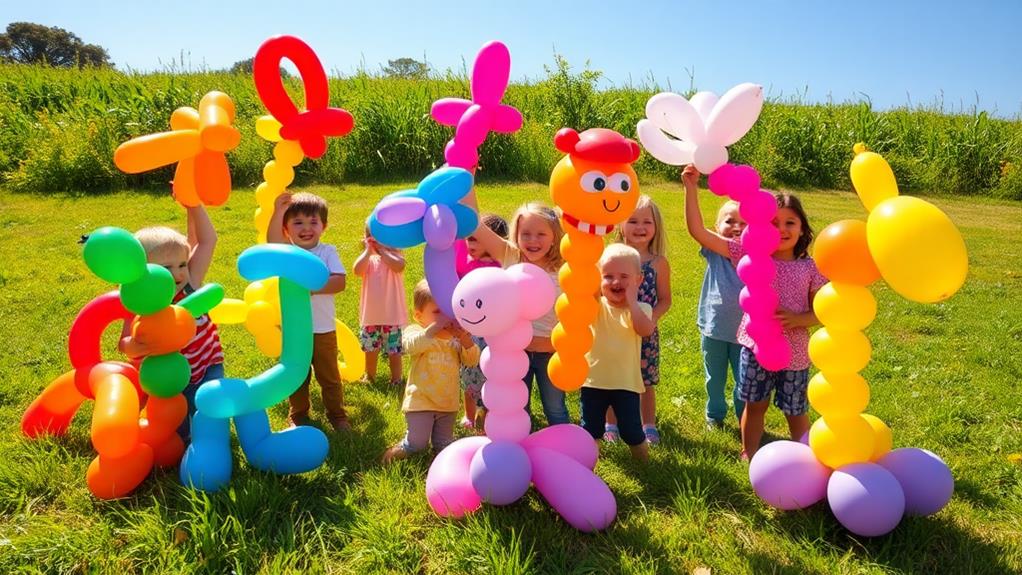
After mastering balloon juggling, it's time to get creative with balloon statues! This fun activity challenges you to transform balloons into cool shapes and figures. Gather some colorful balloons and a few friends, and let your imagination run wild!
To start, inflate a balloon and tie it off. Think about what you want to create—maybe an animal, a flower, or even a cartoon character! As you twist and shape the balloon, remember to keep your hands steady. The more you practice, the better your creations will be!
Once you've built your masterpiece, challenge your friends to create their own balloon statues. You can even have a friendly competition to see who can make the most impressive or wackiest design. Don't forget to take pictures of your balloon art; you'll want to remember these fun moments!
Balloon statues not only spark creativity, but they also help develop fine motor skills and teamwork. So, gather your balloons, invite your friends, and get ready for a blast of artistic expression. You might just surprise yourself with what you can create!
Balloon Tag
Ready for an exhilarating twist on a classic game? Balloon Tag is a fantastic way to combine fun and physical activity, keeping kids engaged and active. To play, you'll need a few balloons—preferably filled with air—and a designated play area.
Start by dividing everyone into two teams. One team will be "it," while the other tries to avoid being tagged.
When the game begins, the "it" team will chase the other players, trying to pop their balloons by tagging them. The catch? Players must keep moving to avoid getting tagged! To increase the challenge, consider adding rules like no hiding behind objects or limiting the play area. This keeps the energy high and the game exciting.
If a player gets tagged and their balloon pops, they join the "it" team. It's a great way to encourage teamwork and strategy, as players must communicate to evade the taggers.
Plus, with the sound of popping balloons and laughter filling the air, you'll create wonderful memories. Balloon Tag isn't just a game; it's an opportunity for kids to develop agility, coordination, and social skills while having a blast!
Balloon Squeeze

Inflating excitement, Balloon Squeeze is a delightful game that challenges kids' grip and coordination while keeping the atmosphere lively. To play, you'll need several balloons and a spacious area.
Start by inflating the balloons and handing one to each child. The goal is simple: each player must squeeze their balloon as hard as they can without letting it escape their grip. You can set a timer for added excitement, encouraging kids to see how long they can hold on.
After a designated time, you can introduce variations, such as having players pass their balloons to a partner without using their hands or attempting to squeeze their balloons while balancing on one foot. These twists keep the game fresh and engaging!
As the game progresses, you might notice kids laughing and cheering for each other, creating a sense of camaraderie. Balloon Squeeze not only promotes physical skills but also builds teamwork and encourages friendly competition.
Balloon Target Practice
Balloon Target Practice transforms a simple balloon into a precision tool for fun! You can set this game up easily, whether indoors or outdoors.
First, grab a few balloons and inflate them to a size that's manageable. You'll also need some targets—these can be plastic cups, paper plates, or even cardboard cutouts. Arrange your targets at varying distances to add a challenge.
Next, gather your friends or family and take turns trying to pop the balloons while aiming at the targets. You can use darts, rubber bands, or even small bean bags to hit those balloons.
To make it more exciting, keep score to see who hits the most targets. You'll quickly find that this game tests your accuracy and hand-eye coordination, making it a great activity for everyone involved.
Balloon Storytime
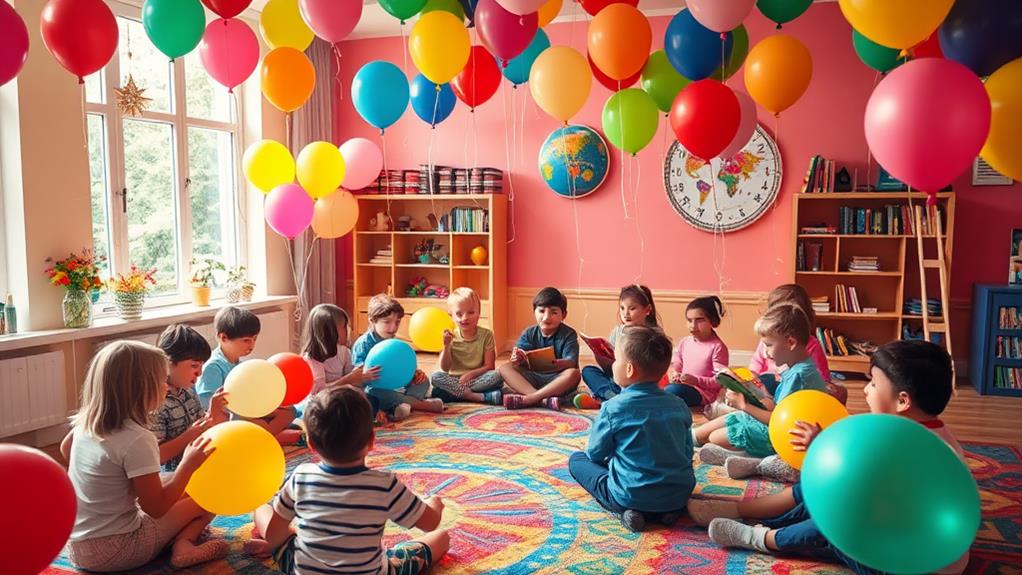
Gathering your friends and family, you can turn a simple balloon into a magical storytelling companion during Balloon Storytime. Start by choosing a fun story that everyone will enjoy. You can use a regular balloon to represent a character or an object from the tale. For example, if you're telling a story about a dragon, inflate a balloon and encourage everyone to imagine it as the dragon soaring through the sky.
As you narrate the story, pass the balloon around. When it's someone's turn to hold it, they can add their own twist to the tale, expanding imagination and creativity. This interactive element keeps everyone engaged and allows for unique interpretations of the story. You might discover unexpected plot twists!
To make it even more exciting, consider decorating the balloon to match the theme of your story. Using markers, stickers, or streamers, you can transform the balloon into a visual representation of your narrative.
This hands-on approach helps younger children connect more with the story, enhancing their listening skills and creativity. Balloon Storytime isn't just about reading; it's about making memories together while sparking joy and imagination in every participant!
Balloon Limbo
Get ready for some fun with Balloon Limbo, a lively game that challenges players to bend and twist under a floating balloon! This game is perfect for parties, picnics, or any gathering where kids want to have a blast.
To set it up, all you need is a long balloon and a couple of willing participants. Start by inflating the balloon and either holding it up horizontally or attaching it to two chairs at a comfortable height. The goal is for players to lean backward and pass under the balloon without touching it.
After each round, lower the balloon slightly to increase the challenge. You'll be amazed at how flexible the kids can be! Make sure to encourage everyone, as some might find it tough to get low. Cheer them on, and let them know it's all about having fun!
You can even add a timer to see who can go the lowest in the shortest amount of time. Balloon Limbo isn't just about bending; it also promotes teamwork and laughter, bringing everyone together for a great time.
Balloon Snatch

After the laughter of Balloon Limbo, it's time to amp up the excitement with Balloon Snatch! This game is all about speed and agility, making it perfect for energetic kids. Start by dividing everyone into two teams. Each team needs a designated area where they can keep their balloons safe. You'll need a bunch of colorful balloons—about ten per team works great!
When you say "Go!", the excitement kicks in! Teams rush to the center and try to snatch balloons from each other's side while protecting their own. The twist? Players can only use one hand! This makes it more challenging and fun.
You can set a timer for two minutes, and when time's up, count how many balloons each team managed to collect. Whoever has the most balloons wins!
This game encourages teamwork and strategy, as players need to decide when to defend and when to attack. Plus, you'll see plenty of giggles and cheers filling the air.
Balloon Snatch is a fantastic way to keep everyone active while having a blast. So gather those balloons and get ready for some friendly competition!
Balloon Soccer
Imagine the thrill of a soccer match, but with a twist—welcome to Balloon Soccer! This fun game takes the excitement of soccer and adds a colorful, bouncy element. All you need are a few balloons, some open space, and a group of eager players.
To set up, inflate several balloons, and create two goals using cones or any markers you have. Divide players into two teams, and the objective is simple: kick the balloon into the opposing team's goal. Since balloons float and move unpredictably, you'll have to be quick on your feet and ready for anything!
As you play, you'll find that teamwork and communication are essential. Players will need to strategize about how to outmaneuver their opponents while keeping the balloon in the air. You can even add some extra challenges, like using only one foot or setting a time limit for each round.
Balloon Soccer isn't just about scoring goals; it promotes physical activity, teamwork, and laughter. So gather your friends, grab some balloons, and get ready for a match that'll leave everyone smiling.
Give it a try—you won't regret it!
Balloon Treasure Hunt

A Balloon Treasure Hunt is an exciting adventure that combines the thrill of discovery with the fun of balloons. You can easily set this up in your backyard or a spacious indoor area.
First, inflate several balloons and place small treasures or clues inside each one. These treasures can be anything from stickers and candies to fun trinkets.
Next, hide the filled balloons around your chosen space. Make sure to note where you've hidden them, so you can help if anyone gets stuck!
Once everything's ready, gather your friends and explain the rules. Each participant gets to pop the balloons to find their treasures. You might want to set a timer to make it even more exciting.
To add an extra layer of fun, consider creating a treasure map or a series of clues that lead to the balloons. This way, kids not only enjoy popping balloons but also engage in problem-solving as they follow the hints.
A Balloon Treasure Hunt encourages teamwork, boosts creativity, and provides plenty of laughter. It's a fantastic way to keep kids entertained while they experience the joy of finding hidden surprises.













































